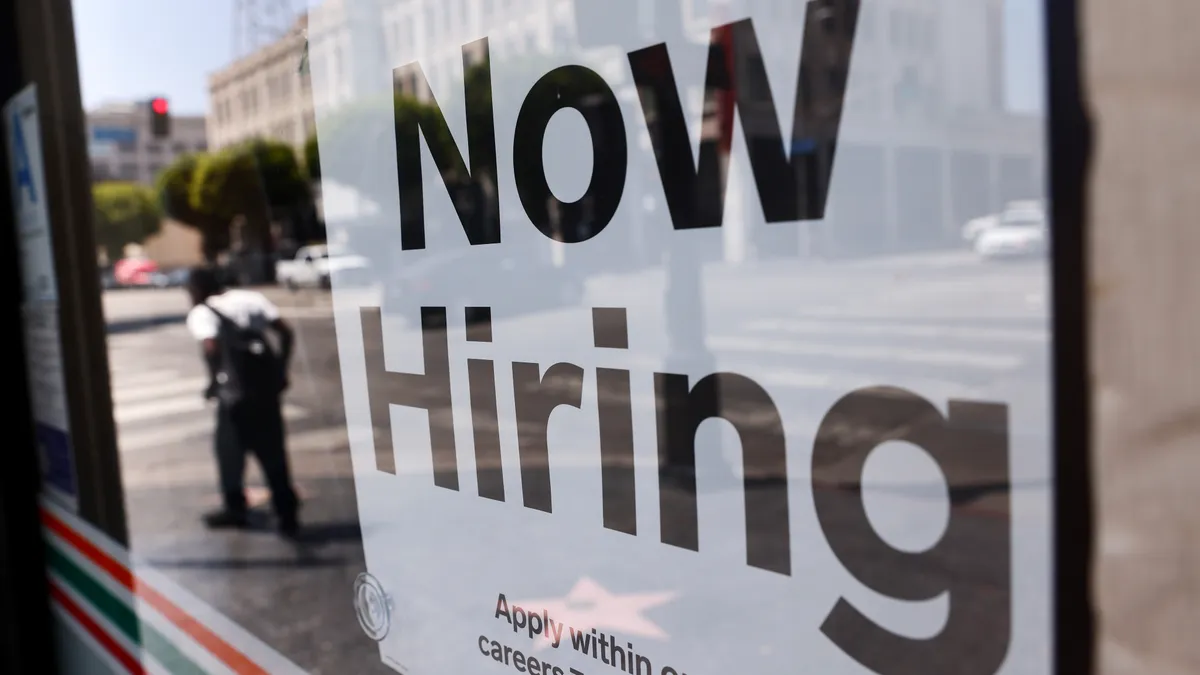Dive Brief:
- While a majority (64%) of job seekers surveyed reported feeling confident their resumes are well-positioned to get by bots and through applicant tracking systems — software used by human resource departments to manage recruiting and hiring — only 10% believe nearly all of their applications are reviewed by a human recruiter, according to a survey of 517 U.S.based job applicants conducted by LiveCareer in June and released last month.
- Amid growing skepticism around how modern hiring systems work, more than half (57%) of job seekers queried reported aborting a job application half-way through the process due to overly complicated requirements, the survey from the Puerto Rico-based provider of online resume building tools found.
- Jasmine Escalera, a career expert at LiveCareer, advises job applicants to carefully vet the systems they are applying to and at the same time she encourages candidates to have faith that people are behind the process. “While it may seem like your resume isn’t being reviewed by a person, the reality is that there are people behind the systems that rank and file applicants,” she said in an email to CFO Dive. “The volume of applications, particularly for remote work, is incredibly high right now, and employers are relying on their systems to help them find and source the right candidates in a productive and efficient way.”
Dive Insight:
The survey is the latest to show signs of eroding trust in the job application process, even as automation, social media and AI are providing an increasing number of spaces in which employers and job candidates can connect.
Earlier this year, a previous survey from LiveCareer of 918 human resource professionals found 88% of hirers say they’ve been "ghosted” by a candidate during the hiring process, with 12% saying it occurred even after they’ve extended an offer and over half (65%) pointed to AI and automation tools as among the drivers causing candidates to ditch the process.
“Job searching has always been a hard and alienating process for job seekers, but the widespread integration of AI into the process is heightening these feelings,” Escalera said Tuesday. “Job candidates are savvy and can tell when part of the process has been outsourced to AI. For example, someone may receive a rejection letter where the timing clearly indicates a hiring manager has not reviewed their application, or written correspondence sounds more “bot” than human. Some companies are even taking things to the extreme and having AI conduct the first round of in-person interviews.”
This doesn’t mean that companies shouldn’t use AI to increase talent acquisition efficiency, they just need to do so in a way that doesn’t alienate candidates, she said. In addition, to help improve the chances of keeping a good job candidate engaged throughout the entire hiring process, Escalera suggested hirers stay in touch as one of the main pain points cited by job seekers is not hearing back from potential employers, she said.
“Providing updates and feedback after each stage of the hiring process is completed as well as identifying opportunities to make the hiring process streamlined and less time consuming are two big areas to focus on,” she said. “Put yourself in the shoes of the job candidate and think about what signals you can send to indicate the hiring team is interested in that individual. If the candidate matches your level of communication and responsiveness, then you know the candidate is equally invested in the opportunity.”














